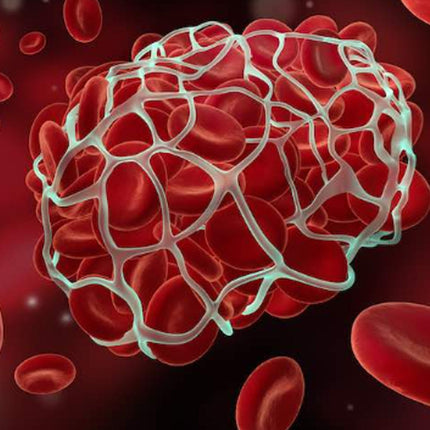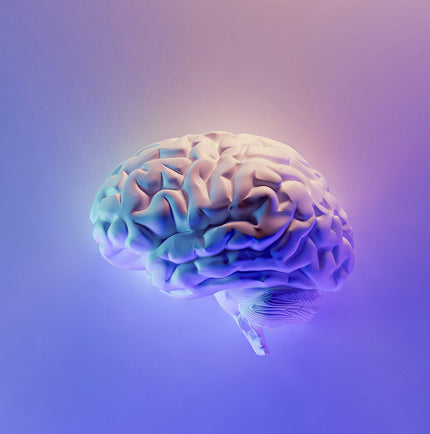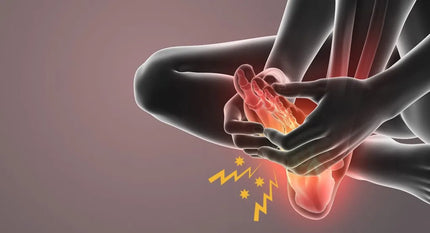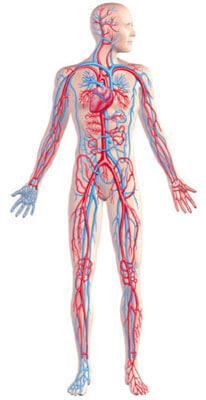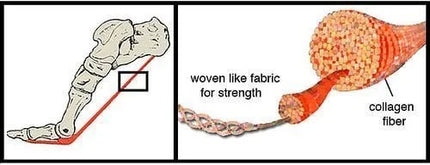Tax included and shipping calculated at checkout
Magnesium: the Immune System’s Super Mineral
(BA UNSW) (Article published in the Australian Traditonal Medicine Journal December 2024)
An inverse relationship between magnesium deficiency and the development of degenerative diseases and immune system disorders has been known for many years, but it wasn’t until the last decade that significant advances have been made to better understand magnesium’s role in immunity.
KEY POINTS:
- “It has been demonstrated that an insufficient amount of Mg in experimental subjects elevated inflammation, amplified immune stress functions, and reduced specific immune reactions.” STUDY REVIEW LINK
- Magnesium deficiency leads to accumulation of free radicals which are toxic for mitochondria.
- Magnesium deficiency impairs response of the adaptive and regulatory immune cells (T and B), whilst activating the innate immune system which promotes inflammation.
- As magnesium is essential for production of enzymes, a magnesium deficiency can lead to a deficiency in the MAGT1 magnesium transporter, which can then further restrict magnesium access to mitochondria, resulting in a negative feedback loop.
- Magnesium functions as a cytoprotective mechanism against oxidative stress, and its deficiency is associated with lipid peroxidation, cytotoxicity, lowering of hepatic glutathione.
- Intracellular magnesium insufficiency prohibits magnesium from accessing mitochondria via the mitochondrial RNA splicing 2 (MRS2) protein and triggers magnesium loss from cells.
- When excessive magnesium is lost from cells, it causes membrane channel dysfunction and subsequent loss of potassium and hydration from cells, which lowers pH and slows cell respiration.
- Magnesium deficiency is associated with auto immune conditions, endothelial dysfunction and ‘inflammatory syndrome’.
- Magnesium deficiency is associated with the depressive symptoms in fibromyalgia and the impaired memory function related with neuropathic pain.
- Magnesium is an important co-factor in the synthesis of vitamin D3, with the immune system’s T and B cells need to function.
- Adequate magnesium is cancer preventative.
Magnesium (Mg2+) is required for homeostasis and regulation of the immune system. Chronic magnesium deficiency leads to enhanced baseline inflammation associated with oxidative stress, which can lead to temporary and long term immune dysfunction. The lower the magnesium status, the more hypersensitive and primed for inflammation the immune system becomes; And the more inflammation and consequential oxidative stress, the more the body excretes magnesium, therefore tending to become even more deficient. Furthermore, we become primed for inflammation from chronic stress (psychological or physical), which leads to excessive urinary magnesium loss, and becomes a vicious circle. 1
Magnesium is the fourth most abundant cation in the human body and the second most abundant cation inside cells. This master mineral electrolyte is absolutely essential for the regulation of cell redox (electron transfer and pH balancing), protection of mitochondria, as well as cell respiration and the ability to produce ATP (adenosine triphosphate). “Magnesium is involved in the regulation of all metabolic pathways and in redox balance, its deficiency generates a metabolic and energetic stress and is associated with the accumulation of free radicals.” 2
The Fire of Inflammation is Fanned by Magnesium Deficiency
Magnesium influences regulation of both cell proliferation as well as apoptosis (cell death). Its deficiency impairs the response of the adaptive and regulatory immune cells (T and B), whilst activating the innate immune system – thus promoting and amplifying inflammation.

This state coincides with heightened levels of tumour necrosis factor (TNF)-α and other proinflammatory cytokines in the bloodstream, as well as decreased concentrations of anti-inflammatory cytokines. The proinflammatory effects of magnesium deficiency are mainly influenced by: the N-methyl-d-aspartate (NMDA) receptor, a glutamate receptor which is the brain’s primary excitatory neurotransmitter; and Nuclear factor kappa-light-chain-enhancer of activated B cells (NF-κB), which controls transcription of DNA, cytokine production and cell survival.
Several studies demonstrate that a moderate or subclinical magnesium deficiency induces a low grade, chronic inflammation, which is the common denominator of many common pathological conditions such as, “cardiovascular diseases, diabetes, asthma, preeclampsia, osteoporosis, inflammatory bowel diseases, mental health disorders and neurodegenerative diseases [2]. Biomarker of chronic inflammation is a modest 2–4 fold increase of inflammatory mediators.” 2
Immune System Regulation, Cell Signalling and Magnesium Sensing
CD8+ T cells are a key component of the adaptive immune system, playing a critical role in recognizing and eliminating infected or malignantly transformed cells. Magnesium is a critical catalyzer of the CD8+ T cell and its potency. It does this by interfacing with the cell surface LFA-1 (Lymphocyte function-associated antigen), which is a protein that plays a critical role in T cell activation and signal transduction. It is a type of transmembrane receptor responsible for communication between the cell and the extracellular matrix (ECM).

LFA-1 is involved in T-cell activation, immune synapse formation, leukocyte trafficking, and the movement of T cells from blood vessels into the surrounding tissue (extravasation). In the process of T-cell activation, LFA-1 acts as a docking site for target cells.
“In the inactive state this docking site is in a bent conformation and cannot efficiently bind to infected or abnormal cells. This is where magnesium comes into play. If magnesium is present in sufficient quantities in the vicinity of the T cells, it binds to LFA-1 and ensures that it remains in an extended and active conformation.” 2
The MAGT1 transporter protein moves charged ions of magnesium into T and B cells, which is essential to prevent cytotoxicity and to support mitochondrial metabolism. “In T cells and B cells, MAGT1 deficiency lowered cytosolic free magnesium and hindered magnesium absorption.“ 3
As magnesium is essential for production of enzymes, a magnesium deficiency can lead to a deficiency in the MAGT1 magnesium transporter, which can then further restrict magnesium access to mitochondria, resulting in a negative feedback loop.
Chronic inflammation from magnesium deficiency is linked to the production and release of, “interleukin-1 (IL-1), tumor necrosis factor (TNF), as well as the activation of phagocytosis, calcium channel opening, NMDA receptor activation, NF-B signaling, and stimulation of nitric oxide with inflammatory markers.” Further, “Studies have shown that Mg deficiency can promote platelet agglomeration, which can affect micro vascular functions, and also limit the growth and migration of endothelial cells. Additionally, research suggests that the stimulation of the IL-33/ST2 axis, a key pathway in inflammation, can lead to decreased Mg levels in severely inflamed tissues.” 3
Oxidative Stress and Mitochondria

If magnesium levels drop too low in cells, redox balance is compromised and mitochondrial function is inhibited in order to protect them from oxidative stress, the ravages of ROS (Reactive Oxygen Species) and lowering of pH to the acidic range. When magnesium is deficient and pH is too low, the entry of glucose and insulin via the cell membrane is restricted to some extent in order to lessen mitochondrial respiration, so that less ROS waste products are produced in order to mitigate excessive oxidative stress.
Normally ROS must be rapidly neutralised and cleared away so that free radicals don’t get a chance to steal electrons from cell organelles and mitochondria, causing injury. Seen in this light, insulin resistance becomes cell protective, but of course has other trade-off side effects.
Magnesium supplementation improves mitochondrial function through various mechanisms, such as mitochondrial ROS inhibition, modulation of membrane permeability, transition channel opening and calcium antagonism. Magnesium is protective of mitochondria as confirmed in this study by Fujita et al, “Our results suggest that Mg2+ that has dissociated from ATP is not merely a byproduct, but functions as a cytoprotective mechanism against oxidative stress and that Mg2+ supplementation is effective in protection against oxidative stress.” 4
Magnesium deficiency is associated with lipid peroxidation, cytotoxicity, lowering of hepatic glutathione and vitamin-E levels, as well as superoxide dismutase (a vital mitochondrial antioxidant), which further leads to an increase in oxidative stress. Magnesium not only works synergistically with other antioxidants, but by itself also donating electrons, thereby works as an antioxidant to scavenge free oxygen radicals.
Problems with neutralisation and clearance of ROS metabolic wastes leads to oxidative stress and age-associated mitochondrial dysfunction, expressed as systemic inflammation. Autoimmune conditions can develop in the presence of, “self-garbage (mtDNA, cardiolipin, or formyl peptides) that may be detected by macrophages. Mg insufficiency disrupts the electron transport chain and facilitates the generation of reactive oxygen species (ROS). The reduced protein expression of manganese superoxide dismutase, including catalase, is indeed driven by magnesium deprivation, affecting the antioxidant defensive reaction. Mg deprivation reduces ATP biosynthesis via down-regulating ATP synthase (F0F1). Intracellular Mg insufficiency prohibits Mg from accessing mitochondria via the mitochondrial RNA splicing 2 (MRS2) protein and triggers Mg efflux.” 3
When excessive magnesium is lost from cells, it causes membrane channel dysfunction and subsequent loss of potassium and hydration from cells, which lowers pH and slows cell respiration.
Endothelial Dysfunction and Inflammation in Auto Immune Disorders; Crohn’s Disease, Colitis, Psoriasis; Respiratory Disorders & Asthma; Diabetes and Cardiovascular Disorders; and Slow Healing Leg Ulcers
Endothelial dysfunction and the development of an inflammatory ‘syndrome’, is accompanied by the activation of leukocytes and macrophages. Levels of proinflammatory cytokines, acute-phase proteins, and free radicals also increase.
Magnesium deficiency appears to affect the function of mast cells and their ability to secrete histamine. Several studies have also shown a significant relationship between low magnesium and severe Covid-19 symptoms, influenza, asthma and other respiratory issues.
Magnesium supplementation has been shown to improve bronchodilation, including the lung function in asthma patients, via calcium antagonism and relaxation of the smooth muscles of the endothelial linings, helping to mitigate an exaggerated inflammatory response. Magnesium is an important cofactor for the synthesis of immunoglobulin (Ig), C3 convertase, adhesion of immune cells; antibody-based cytolysis, IgM lymphocyte binding, macrophage response to lymphokines, and T helper–B cell adherence.

Numerous enzymes rely on magnesium as a necessary cofactor. It is essential in the synthesis of all proteins, including enzymes, hormones, collagen and elastin. Magnesium deficiency is associated with premature ageing and frailty of skin, hair, nails, bones, teeth – that is, the whole integumentary system.
When redox is out of balance free radicals from metabolic wastes accumulate, cause pH to drop, and attract pathogens to that environment, which can further increase the acidic load and compromise redox. If the liver is under too much stress and detoxification is sub optimal, toxins can escape into the lymphatic system, promoting skin conditions like eczema, psoriasis, dermatitis, and itchy rashes.
Magnesium deficiency is associated with the depressive symptoms in fibromyalgia and the impaired memory function related with neuropathic pain. “High Mg also decreases BBB permeability and promotes BBB clearance of Aβ from the brain… Neuroinflammation has a relevant pathogenic role in neurodegeneration, seizures, migraine chronification, traumatic brain injuries and ischemic stroke.” 3 A personalized magnesium supplementation program helps to reduce the Ca:Mg ratio, which lowers inflammation and significantly boosts cognitive function.
Care should be taken with detoxification therapies so as not to overload the system, and to ensure adequate antioxidant support is available – especially sufficient magnesium! Apropos antioxidants, magnesium has a synergistic effect with ascorbic acid by increasing its potency. This is an important consideration because those with impaired endothelial innings may not tolerate high doses of vitamin C. In addition, the liposomal version of C is better tolerated, as lipids are membrane protective.
Magnesium Regulates Levels of Intracellular Free Calcium and pH Balance

When magnesium is low, ion channels loosen and become compromised, allowing too many calcium ions to enter the cell from the extracellular spaces. This coincides with loss of cell water and potassium, and the resulting excessive contraction of muscle fibres can cause muscle and heart rhythm disturbances, as well as electrical conductance issues. Magnesium however is antagonistic to calcium and also brings hydration back to the cell, with improved membrane charge and function keeping valuable potassium in.
Calcium leaching out of bones and settling in soft tissue is a responsive reaction to a redox imbalance, because it is an alkalising mineral. If oxidative stress becomes excessive and ROS are not effectively neutralised, and if there are not enough antioxidant supports to donate electrons to quell free radicals, then free calcium is systemically released from bones, as this cation is attracted to electron deficient molecules – such as those of inflamed endothelial linings.
If calcium deposition becomes chronic, eventually the endothelial linings of the vascular system, as well as other tubular systems in organs like kidneys and bladder, become more rigid and lose integrity and flexibility. If kidney tubules stiffen, they lose efficiency to recycle magnesium and other alkaline minerals, thereby losing alkalising capacity, which contributes to acidosis and worsening health conditions.
Vitamin D
Vitamin D3 (cholecalciferol) is a fat soluble hormone that is essential for bones, the immune system, cardiovascular function and brain health. Most endogenous vitamin D is produced in the skin via exposure to direct sunlight in the presence of cholesterol sulphate and magnesium ions. We can absorb vitamin D from certain foods like butter, eggs and seafood, but dietary amounts are usually not enough to supply all that we need, except in certain cultures with a high oily fish diet. In most cases, we rely on the sun for the majority of our vitamin D supply.
Magnesium is a cofactor for vitamin D synthesis, and its deficiency can lead to a decrease in vitamin D formation from its precursors. This leaves the immune system’s T cells, B cells and antigen presenting cells, short of supply and sub-optimal, as all have vitamin D receptors. This weakens the immune system.
Researchers, Cheung et al, discovered enhanced efficacy of treatment of obese individuals suffering inflammatory conditions when magnesium and vitamin D were supplemented together. They found that, “the MagD group experienced the greatest increase in serum 25OHD concentrations (6.3 ± 8.36 ng/mL; P < 0.05). There was a decrease in systolic blood pressure (7.5 ± 8.26 mmHg; P < 0.05) for individuals who had a baseline systolic blood pressure of >132 mmHg in the MagD group.” 5
Caution should be exercised with vitamin D supplementation alone when magnesium status is low, because vitamin D mobilises free calcium, and calcium is a magnesium antagonist. This high vitamin D and low magnesium ratio can promote hypercalcemia, which reduces magnesium’s potency.
As it’s easier to get calcium than enough magnesium from diet, and magnesium is excessively excreted under stressful conditions, there is a propensity for calcium to become dominant and deposit into soft tissue such as endothelial linings of blood vessels. This can be particularly exaggerated in a high carbohydrate diet due to anaerobic metabolism and corresponding insulin resistance.
In treating vitamin D deficiency, its supplementation should go hand in hand with magnesium supplementation, as well as avoidance of calcium supplementation (except in rare circumstances of genuine calcium deficiency). It is often the case that lifting magnesium status can eliminate symptoms of calcium deficiency where the problem wasn’t a shortage of calcium, but rather how it was being regulated and used in the body.
Magnesium Sufficiency is Cancer Preventative
Magnesium also plays a critical role in preserving the active structure of macromolecules such as DNA, RNA, and ATP, damage of which is linked to cancer. Magnesium is involved in regulating second messengers derived from lipids and phosphoinositides, compensating for charge imbalances.
Oxidative stress and magnesium deficiency activate inflammatory pathways which can lead to transformation of normal cells to a tumour cells, their proliferation, chemoresistance, radio-resistance, invasion, angiogenesis, and stem cell survival, as T and B cell immune regulation becomes compromised and normal apoptosis of corrupted cells is suppressed. 6
“A recent meta-analysis showed that a linear relationship exists between higher dietary magnesium intake and reduced cancer mortality, with a 5% decrease in cancer mortality observed for every 100 mg/d increase in magnesium intake. Interestingly, lower dietary Mg intake may be associated with increased production of N-nitroso compounds, which are carcinogens.” 3
In studies on mouse models of cancer, researchers have demonstrated strengthening of the immune response of T cells against tumour cells by an increase in local magnesium concentrations in the tumours. 6

Magnesium Supplementation to Support the Immune System
Subclinical magnesium deficiency is common, especially in the ageing population, because of insufficient magnesium intake, excessive and chronic stress, medications, chronic diseases, as well as digestion and absorption issues.
A magnesium rich diet is recommended, but caution should be exercised with foods high in oxalates and other phyto chemicals which block magnesium. Sufficient soaking and cooking techniques can help to release the bound magnesium – but make sure the cooking water is not discarded! Soups, such as those recommended in the GAPS protocol, are easier to digest and can support a magnesium-rich diet.
The consumption of drinking water with magnesium chloride (MgCl2) can also serve as a significant means of obtaining magnesium via diet. 3 Dissolved magnesium chloride is already in the right form for solubility and cell absorption without further digestion. High concentrations of magnesium in any form attract water and have a laxative effect, which means most of the magnesium doesn’t make it across the gut wall to the interior. 7
The optimal magnesium uptake via gut wall is in concentrations found in natural spring waters in the range 30 to 130mg elemental magnesium per litre, and is in the form of MgCl2. Therefore, regular drinking of magnesium mineral water provides optimal dietary intake without necessitating stomach digestion. Magnesium in drinking water also increases hydration capacity of the water, which supports mitochondrial metabolism and excretion of cell wastes.

However, high end magnesium needs can be catered for with additional daily transdermal magnesium supplementation, because magnesium chloride topical cream, lotion and spray, as well as magnesium bathing, have the potential of delivering much higher amounts of magnesium via epidermal absorption. Magnesium bathing can also enhance detox via skin.
The skin can store extra magnesium, particularly in the presence of lipids, which are skin protective. There is no risk of overdose using this method, as the body is self-regulating via skin absorption of magnesium. Not only is the use of transdermal magnesium soothing and relaxing, helping to relieve stress, but regular daily use helps to restore cellular stores of magnesium over time.
More research is now being conducted to investigate the use of MgCl2 as an adjunct cancer treatment. “Santos et al. found that MgCl2 causes apoptosis and significantly slows migration in cancer cells with varying metastatic potentials. MgCl2 inhibits invasion and metastasis by lowering V-H plus ATPase with myosin II expression, suppressing vimentin expression, and increasing E-cadherin expression, implying function for MgCl2 in EMT reversing. In addition, MgCl2 inhibits NF-k expression while promoting chromatin condensation.” 3
It should be noted that subclinical magnesium insufficiency can exist in tissue cells, but not necessarily be revealed by blood tests, as blood only contains about 1% of the body’s magnesium, which is kept within a narrow range to support cardiovascular health. Tissue cells often sacrifice their stored magnesium in order to maintain magnesium balance in the blood. “Metabolic unit depletion/repletion experiments show that serum magnesium concentrations decrease only after a prolonged depletion.” 8
As people get older, their immune systems lose their natural ability to fight infections, increasing their risk of infection, neoplasms, and autoimmune diseases, as well as their ability to heal skin wounds. Metabolic disorders, inflammation, respiratory illnesses, endothelial dysfunction, thrombosis, heart rhythm abnormalities, osteoporosis, depression and mental illnesses are all fundamentally magnesium deficiency symptoms.
“Illness load is linked to deterioration of immune system competence rather than chronological age.” 3 The common denominator in degenerative diseases and ageing is magnesium deficiency, which is why magnesium has been commonly referred to by researchers as ‘the Anti-ageing Mineral’. Read more about Magnesium Science…
Sandy Sanderson © 2024 www.elektramagnesium.com.au
REFERENCES:
(1) Pickering, G.; Mazur, A.; Trousselard, M.; Bienkowski, P.; Yaltsewa, N.; Amessou, M.; Noah, L.; Pouteau, E. Magnesium Status and Stress: The Vicious Circle Concept Revisited. Nutrients 2020, 12 (12), 3672. https://doi.org/10.3390/nu12123672.
(2) Maier, J. A.; Castiglioni, S.; Locatelli, L.; Zocchi, M.; Mazur, A. Magnesium and Inflammation: Advances and Perspectives. Seminars in Cell & Developmental Biology 2021, 115, 37–44. https://doi.org/10.1016/j.semcdb.2020.11.002.
(3) Ashique, S.; Kumar, S.; Hussain, A.; Mishra, N.; Garg, A.; Gowda, B. H. J.; Farid, A.; Gupta, G.; Dua, K.; Taghizadeh-Hesary, F. A Narrative Review on the Role of Magnesium in Immune Regulation, Inflammation, Infectious Diseases, and Cancer. Journal of Health, Population, and Nutrition 2023, 42, 74. https://doi.org/10.1186/s41043-023-00423-0.
(4) Fujita, K.; Shindo, Y.; Katsuta, Y.; Goto, M.; Hotta, K.; Oka, K. Intracellular Mg2+ Protects Mitochondria from Oxidative Stress in Human Keratinocytes. Commun Biol 2023, 6 (1), 1–9. https://doi.org/10.1038/s42003-023-05247-6.
(5) Cheung, M. M.; Dall, R. D.; Shewokis, P. A.; Altasan, A.; Volpe, S. L.; Amori, R.; Singh, H.; Sukumar, D. The Effect of Combined Magnesium and Vitamin D Supplementation on Vitamin D Status, Systemic Inflammation, and Blood Pressure: A Randomized Double-Blinded Controlled Trial. Nutrition 2022, 99–100, 111674. https://doi.org/10.1016/j.nut.2022.111674.
(6) Lötscher, J.; Líndez, A.-A. M. i; Kirchhammer, N.; Cribioli, E.; Attianese, G. M. P. G.; Trefny, M. P.; Lenz, M.; Rothschild, S. I.; Strati, P.; Künzli, M.; Lotter, C.; Schenk, S. H.; Dehio, P.; Löliger, J.; Litzler, L.; Schreiner, D.; Koch, V.; Page, N.; Lee, D.; Grählert, J.; Kuzmin, D.; Burgener, A.-V.; Merkler, D.; Pless, M.; Balmer, M. L.; Reith, W.; Huwyler, J.; Irving, M.; King, C. G.; Zippelius, A.; Hess, C. Magnesium Sensing via LFA-1 Regulates CD8+ T Cell Effector Function. Cell 2022, 185 (4), 585-602.e29. https://doi.org/10.1016/j.cell.2021.12.039.
(7) Karagülle, O.; Kleczka, T.; Vidal, C.; Candir, F.; Gundermann, G.; Külpmann, W. R.; Gehrke, A.; Gutenbrunner, C. Magnesium Absorption from Mineral Waters of Different Magnesium Content in Healthy Subjects. Forsch Komplementmed 2006, 13 (1), 9–14. https://doi.org/10.1159/000090016.
(8) Nielsen, F. H. Magnesium Deficiency and Increased Inflammation: Current Perspectives. J Inflamm Res 2018, 11, 25–34. https://doi.org/10.2147/JIR.S136742.







